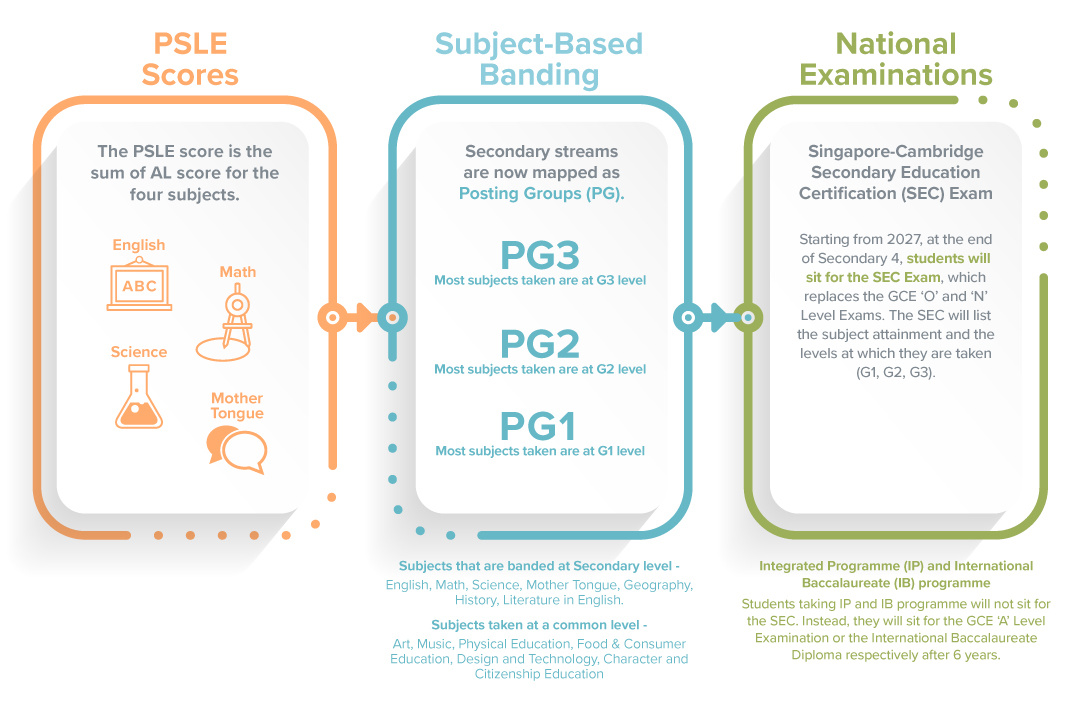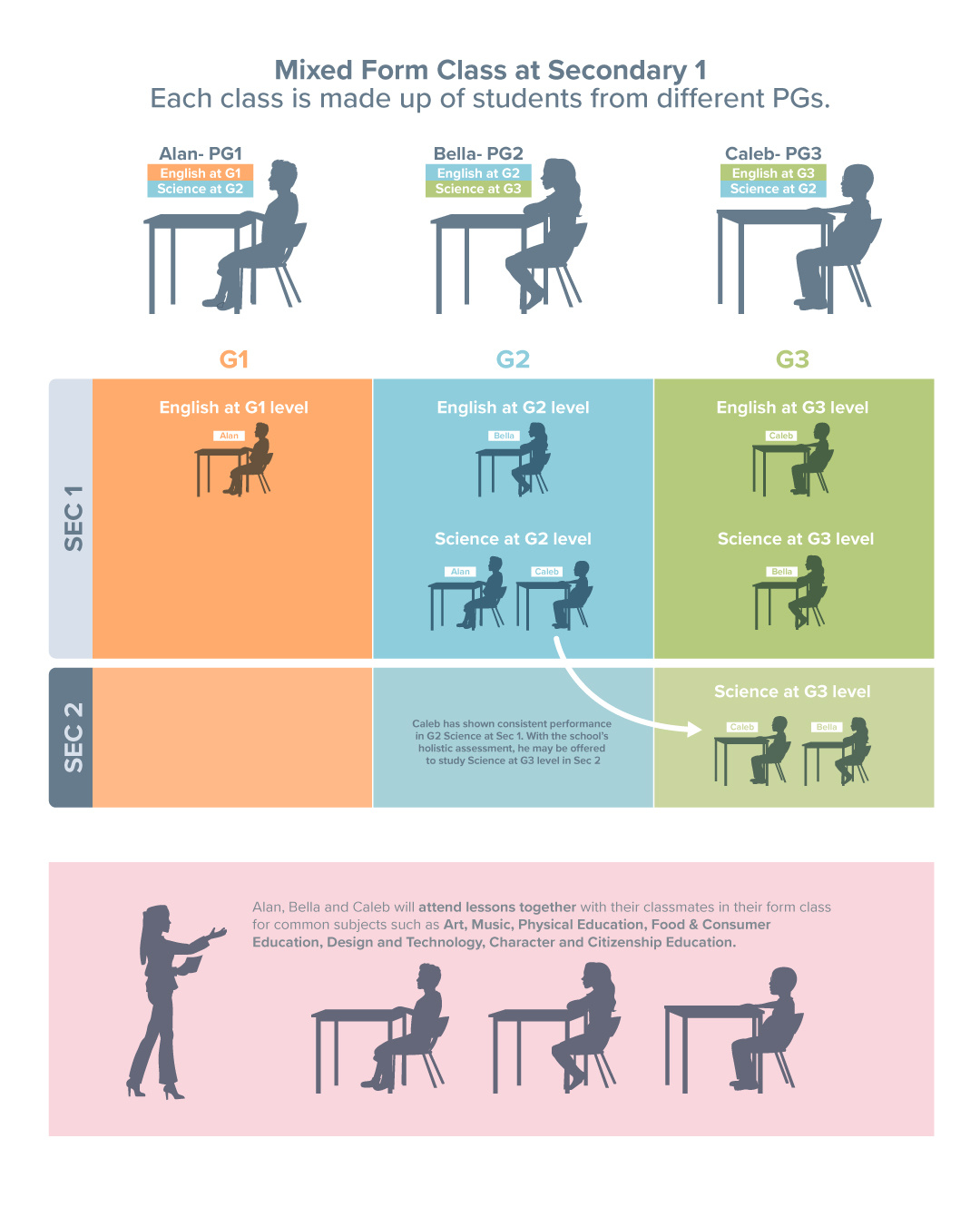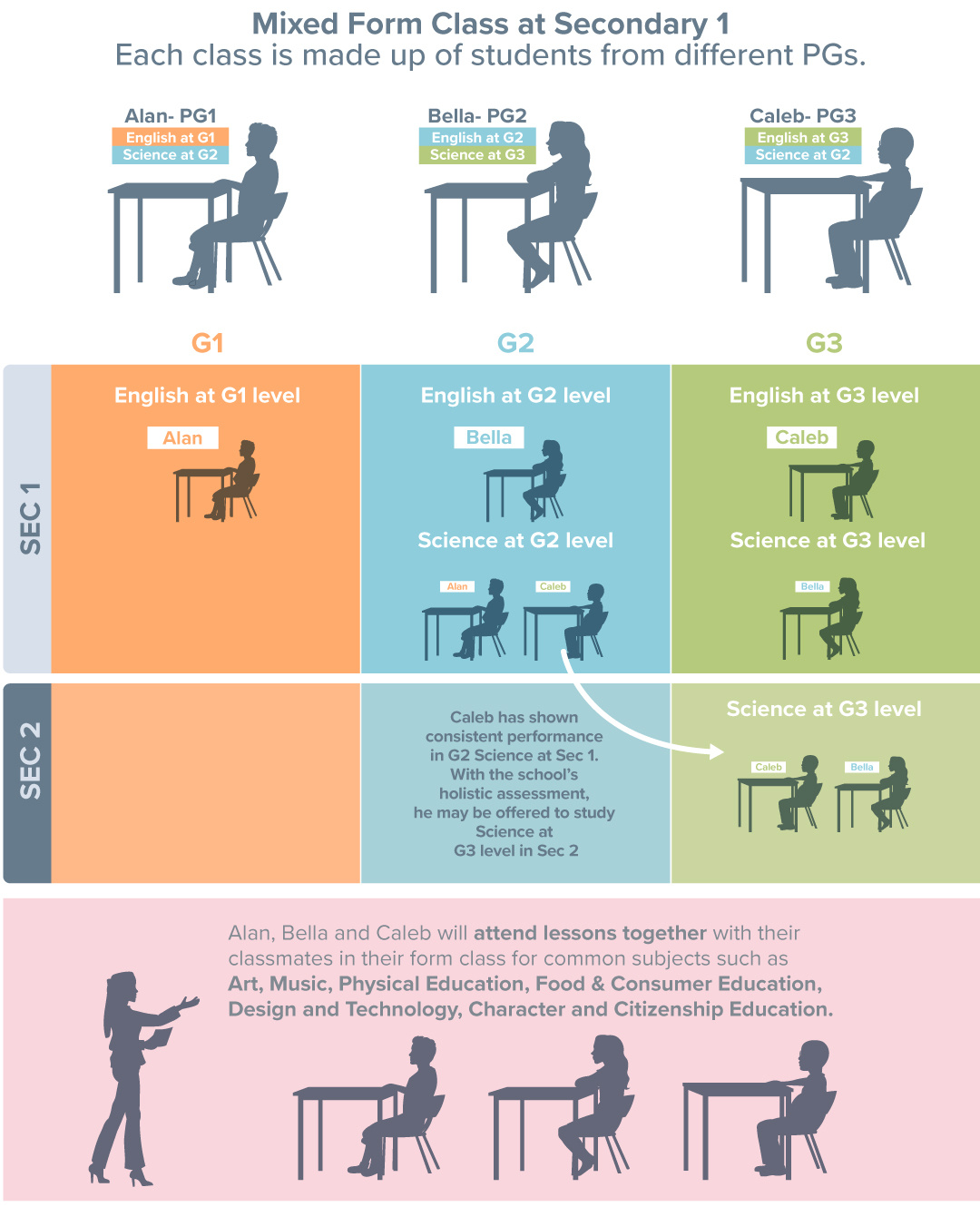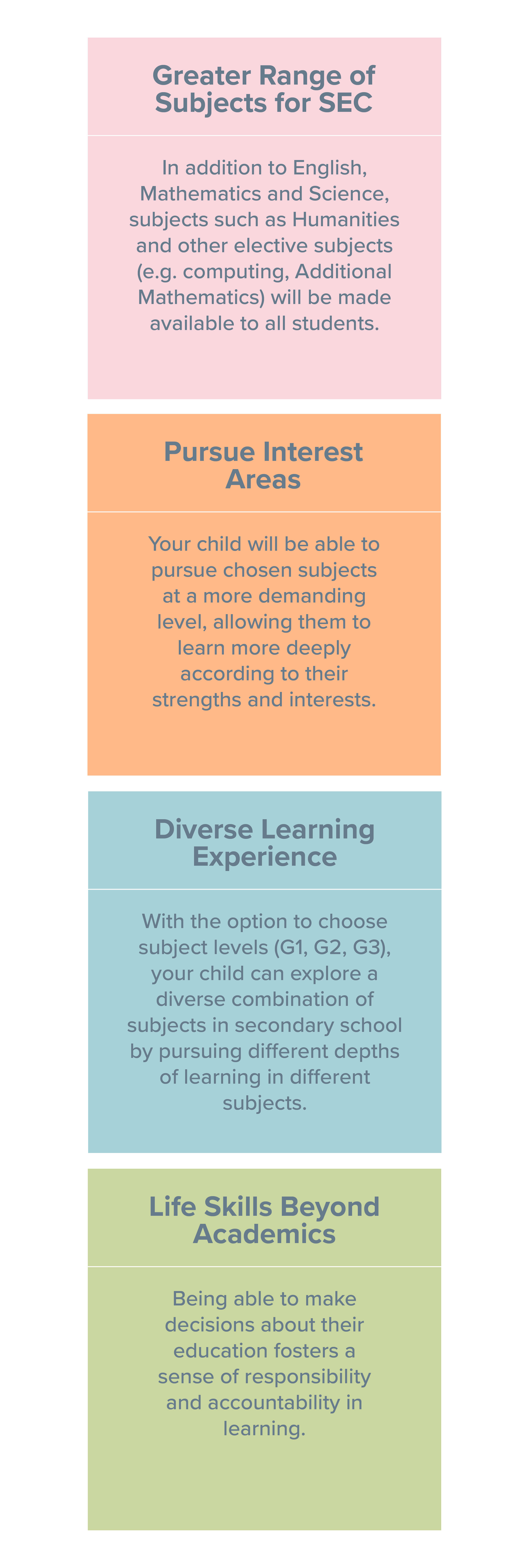
The Ministry of Education has announced a slew of changes for incoming secondary school students in 2024. These changes include Full Subject-Based Banding (Full SBB) for these students. In this article, we will explore how these changes might affect your child and offer tips on how you can prepare them effectively.
What is Full Subject-Based Banding and How will it Affect Your Child?
Full SBB allows your child to study secondary school subjects at varying General (G) levels – G1, G2 and G3, mapped from existing N(T), N(A) and Express standards. Upon receiving their PSLE results, your child will be informed of their Posting Group (PG), which will be used to guide their choice of schools.
Their subject banding will then be determined based on their PSLE Achievement Level (AL) scores for each subject. If eligible, they may be offered to study English, Mother Tongue Languages, Mathematics and Science at a more demanding level in Secondary 1, and Humanities at a more demanding level in Secondary 2.






The move towards Full SBB allows students to pursue their strengths and interests in specific subjects, resulting in a diverse portfolio of subjects taken at the new Singapore-Cambridge Secondary Education Certificate (SEC) examination.
With Full SBB, your child is empowered to progress at their own pace. If your child begins the subject at G2 level and consistently performs well, coupled with their interest, readiness, and the school’s holistic assessment, they may be offered to take the subject at a more demanding G3 level. This approach encourages a growth mindset, which TLL's Knowledge, Skills and Disposition (KSD) model is aligned with. In this model, students not only acquire the knowledge and skills to achieve academic success, but also develop a positive mindset so that they will grow in confidence to overcomes challenges and achieve their goals.


What are the Benefits of Subject-Based Banding?


3 Ways You Can Support Your Child
1. Build a Good Support System
It is essential to provide a strong support system to help your child navigate through changes in school environment, learning styles and curricula.
You can start by instilling a growth mindset for your child and creating a community of knowledge and support with fellow parents on the same journey. Engage with education professionals and stay updated through education forums. This helps you gather valuable advice and recognise when your child needs help. Seek out an education partner that not only imparts academic knowledge and skills but emphasizes on fostering can-do attitudes. This comprehensive approach ensures that your child is well-equipped to navigate the challenges and achieve their best in all endeavours.
2. Take a Forward-Looking Approach
Strengths and weaknesses are not necessarily conflicting. If your child excels in certain subjects and struggles in others, view this as an opportunity to identify their academic strength in specific subjects. Approach weaker subjects with an improvement-oriented mindset. Having this shift in mentality helps your child to recognise that people have different strengths and learning needs in both school and in life.
This becomes an excellent starting point for conversations to encourage self-reflection and self-awareness. You can engage your child in such discussions by asking questions like:
“I see that [topic in Math] can be challenging for you. Can you tell me more?”
“Wow, your teacher says how much you are enjoying writing English essay. Tell me more about that!”
“It’s okay to struggle with something; it’s part of the learning process and how we grow. What do you think you can do to improve your understanding and make it less stressful for you?
Developing self-reflection and self-awareness are key to unlocking your child’s ability to independently identify areas for improvement. At TLL, we nurture this self-reflective habit through various methods, placing a strong emphasis on understanding one’s own mistakes through analysing errors.
This approach encourages them to take responsibility for understanding why they may have answered a question incorrectly and reinforces the idea that grades are not the sole outcome of learning.
3. Co-Pilot with Your Child
As your child becomes more independent in secondary school, it is important to shift from being the sole driver of their education to a co-pilot role. Create a safe space where they can freely voice their thoughts, concerns, triumphs, and setbacks to you. This empowers them to provide valuable insights and learn to make informed decisions about their education, such as their choice of school and subjects they envision pursuing at a higher level in the future.
Maintaining such open, honest, and accountable communication will help ensure that your child feel heard and supported throughout their educational journey.
Building confident self-expression is a skill that can be learnt, honed, and applied in TLL. In our lessons, we motivate students to express their thoughts, ask thoughtful follow-up questions and engage in class discussions with their peers and teachers. In addition to building confidence, this also allows your child to consider various perspectives, evaluate them against their own and adjust when necessary. With these skills, your child will grow into someone confident of charting their own path ahead.
You Have a Question? Let’s Chat.
Find and visit your nearest centre here.
If you have any questions about our range of programmes or class schedules, you may fill in the form below or contact us at 67338711 or at enquiry@thelearninglab.com.sg.
The Learning Lab is now at locations. Find a location that suits your needs.
If you have any questions about our range of programmes or class schedules, you may contact us at 6733 8711 or drop us an email at enquiry@thelearninglab.com.sg.




